The biggest flops of 2018
Year after year, the industry provides at least a few reasons to doubt the good intentions of the publishers. The past twelve months have unfortunately not been an exception.
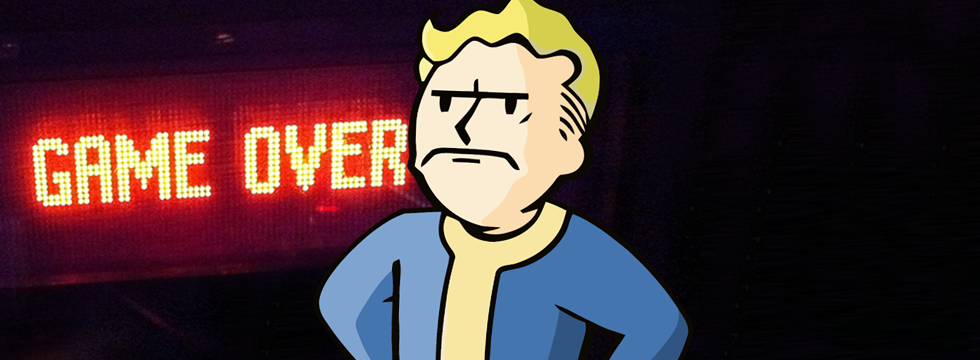
This wasn’t a bad year, no? Maybe it wasn’t as impressive as 2017 in terms of really big releases, but we’ve seen some totally incredible games – God of War, Red Dead Redemption 2, Spider-Man or Kingdome Come to name a few, kept boredom at bay. The really good sales figures of the above titles have hopefully proven, once and for all, that singleplayer games are not dying; a whole lot of really interesting projects have been announced, and the increasing pressure from governments on game publishers has had some success in tackling lootboxes in particular games. On top of that, there was some pretty exciting news about the advent of the next generation.
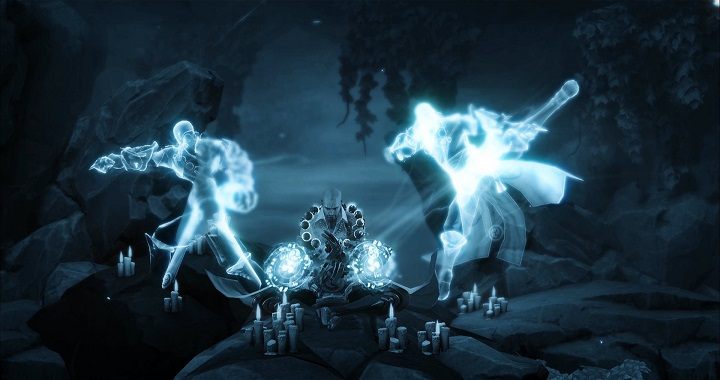
Fortunately for those of us with malcontent inclinations, though, there also were some bad apples in the barrel. Which isn’t really surprising – the industry has grown to such proportions that a few more or less spectacular flops are rather unavoidable. We’ve chosen nine of them (those more spectacular) and we’re going to examine them in this article – just to keep the folks out there on their toes. From disastrous marketing decisions, through deplorable treatment of employees in some large studios, to anti-consumer practices: the industry has, as usual, collected a few new black eyes. Behold – this won’t be pretty.
Just to make it clear – we’re not looking at the worst games of 2018 here, but rather at some of the mishaps that have shaken our nerves. Of course, some of them are inherently related to specific titles, but the release of a poor game itself doesn’t grant you a spot on our dishonorable list. We needed more, and sure enough, the industry delivers – and unfortunately more than once.
The Disappointing Demise of Telltale Games
We’d known for quite a while that things weren’t all honky dory at Telltale Games. From the news and articles covering the studio, emerged a picture of a toxic company, weakened by the disastrous decisions of the board and the chaos caused by too many projects being developed at the same time. Nevertheless, the breaking news about the beginning of the definitive end of the studio was surprising – overnight, the company that used to employ more than 300 developers, became a 25-person team, whose only responsibility would be “fulfilling obligations” towards partners and investors. We will mostly miss The Walking Dead and The Wolf Among Us. And while the final season of the adventures of Clementine will indeed be realized, there’s no chance for any of the Bigby stuff anymore.
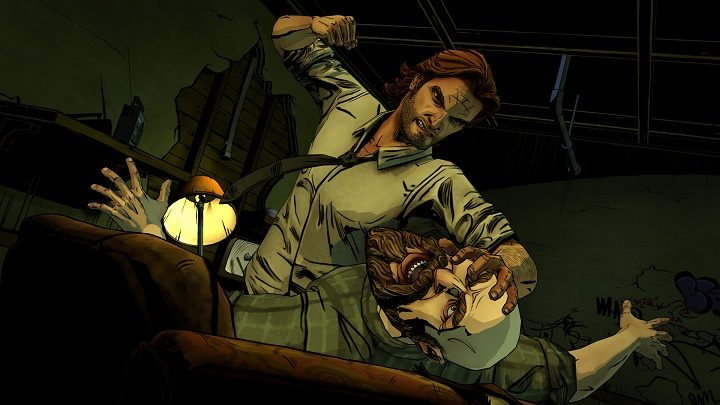
While initially we mostly felt sad about the unexpected closing of the studio that gave us, among others, the phenomenal first season of The Walking Dead, or The Wolf Among Us, the feeling of disappointment was soon superseded by shock and outrage. Reports on how the management of Telltale Games treated their employees started surfacing. The team learned about the collapse of the company on the same day they were fired. They were given half an hour (sic) to collect their belongings and then, two hounded and fifty talented developers became jobless, just like that – no severance pay, no chance for any benefits, and with a health insurance valid only for several days. Of course, they decided to sue their former employer and it’s hard to imagine that the court would not agree with them, although some time will pass before the final verdict is announced.
Luckily, other companies lent a helping hand to the jobless developers. Both some of the giants of the industry – Ubisoft, Blizzard, Electronic Arts – as well as smaller teams, promptly offered employment in their ranks. The response of the competition is the only silver lining here; considering the way it treated its employees, Telltale Games itself won’t be missed. The whole affair is even more appalling if you remember that the heart of the studio’s productions were moral choices.
The Publishers Won’t Back Down on Micropayments
The scandal associated with the absurd micropayment system in Star Wars: Battlefront 2 – a game that was sold at a full price, yet was also utilizing strategies more typical of free-to-play mobile games – spurred a real crusade against lootboxes this year. The United States, Sweden, the Netherlands, Belgium – these are just some of the countries, whose governments decided to verify whether buying virtual boxes with random content for real money is not by any chance gambling. The publisher thus decided to harness the foul practices a little – still, they were far from abolishing them completely. And the desperation, with which some of the companies tried to defend their right to keep playing anti-consumer games was truly amusing.
Organizations such as the Entertainment Software Association, which brings together most of the industry's giants, and the ESRB (which grant age limits in North America), decided to defend the interests of publishers in the public arena, but the efforts weren’t tremendously successful. The ESA representative warned that regulations in this matter threaten innovation, but during a hearing on lootboxes, he was unable to explain how that actually justifies addiction or gambling. The ESRB openly admitted that it had no intention of taking any action other than adding a new stamp on boxes, and called random content “great fun.”

The most interesting part of the story, however, was that the Belgian government ultimately didn’t decide to ban lootboxes. Most companies, crestfallen and defeated, decided to withdraw those mechanics from their games in Belgium (although 2K Games had the cheek to ask players for a petition to the government in defense of the lootboxes – Haytham Kenway would call this “rich”). Electronic Arts didn’t follow suit – the company stated that it did not intend to give up card packs in the extremely popular FIFA Ultimate Team mode, and started a court battle with the Belgian government. How many of you are actually with EA on this?
Fallout 76’ Cardinal Sins
We all know that games from Bethesda Softworks follow their own rules and that you have to learn ignore numerous glitches – and usually an archaic engine – in order to fully enjoy them. What’s interesting though, is that their games, given the benefit of doubt, usually turned out really enjoyable. Up until a point, you would be forgiven for hoping that Fallout 76, the first multiplayer-only installment in the venerable, post-apo series, was going to be one of these games. Bethesda, however, had other plans, and decided to educate the players in terms of trust even before the release, serving them a series of flops of truly epic magnitude.
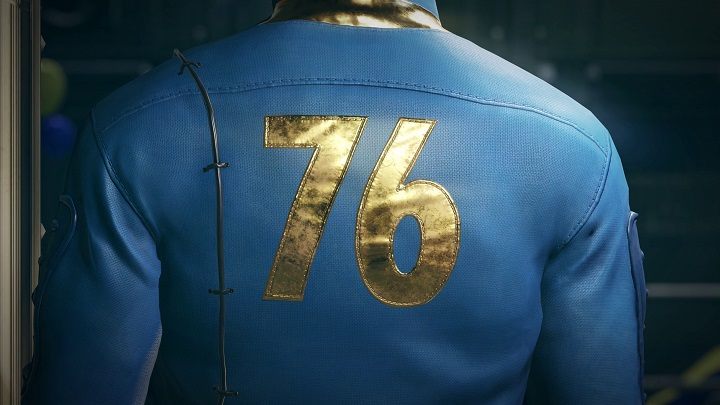
An error that wiped the game from the hard drive, framerate-dependent speed of attacks, spectacular oversights during the game’s tests, no way of uninstalling the beta completely without purchasing the full game... The list of absurd snags of Fallout 76 was lengthy even before the game was released. And if anyone had hoped the devs will actually manage to pull it off before the release, they had to revise their expectations after November 14 – virtually all reviews pointed out the game’s terrible technical condition. For the price of a triple-A, we received something resembling early access, and getting a refund was nearly impossible.
Fortunately, the players were sensible enough to show Bethesda that they will not stand being treated like this. Fallout 76’s sales in the UK plummeted, being 80% smaller than those of Fallout 4 (data does not include digital distribution), the game was discounted by 33% just 9 days after its release, and the publisher now faces a class action for obstructing the refund process of the digital copies of the game on the PC. The developers must now consider whether their game is still worth saving. For the time being, Bethesda has been largely denounced as arrogant – it just goes to show that it’s still too early to take the customer out of the equation when releasing big games, even when sporting a reputation such as (formerly) that of Bethesda.
Konami Breaks Metal Gear
Developing a series that was abandoned by its father, heart, and mastermind is never an easy task. Although – in the case of Metal Gear – the verb “abandon” isn’t really proper; unceremoniously thrown away sounds more like it. The man in question wasn’t even allowed to receive the prestigious award during The Game Awards in 2015... The way Konami handled Hideo Kojima is a reason enough to scorn the company, but even those who didn’t like the Japanese publisher in the first place, probably hadn’t wished the next installment of the Metal Gear series to turn out a complete failure.
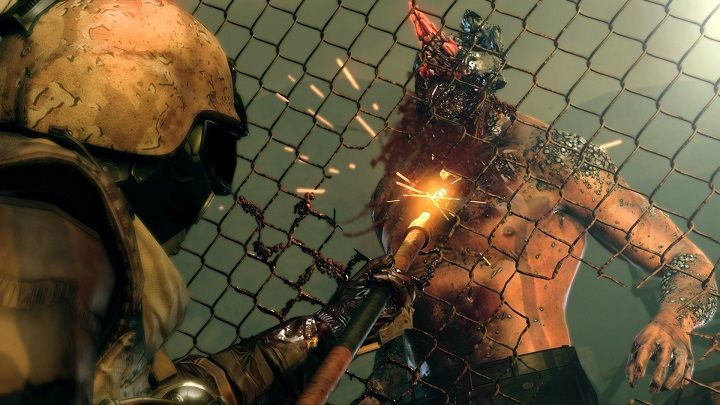
We'd probably have forgiven Konami if it hadn't been a Metal Gear game. They decided, however, that the title "Zombie Stick Jabber Simulator" would not carry the same marketing punch.
Unfortunately, Survive raises concerns about the future of the entire franchise. Of course, without Kojima, it could not have been the same, but Konami didn’t even try. Each installment of Metal Gear Solid had its own character and was innovative one way or another. Survive is, in turn, a soulless, formulaic survival, in which we break through hordes of zombies and expand the base without the slightest emotional involvement. This is not a bad game per se, it simply is a bland, average title, which is not worthy of being mentioned in the same sentence with other installments of the cycle.
In addition, there were the micropayments. We could (admittedly with a heavy heart) put up with additional payments for cosmetic items – which already seems to be a well-established trend in the industry – but the Japanese company decided to go a few steps further, giving players just one slot for savegames and forcing them to pay an additional $10 for each subsequent one (sic) – impudence and greed at its worst. So – even though being a bad game alone is not enough to be on this list – for extreme laziness (the game reused a lot of content from Phantom Pain), for tarnishing the legendary franchise and blemishing the reputation of its creator; for lack of a concept for an interesting game and for the embarrassing micropayments, Konami and Metal Gear Survive receive a well-earned spot here.
Katanas, Prosthetics, and Censorship, or Battlefield V’s Promo Campaign
Fans of the Battlefield franchise were truly elated when it was announced that the next installment would go back to the roots, the Second World War. With Battlefield V’s first trailer, though, you could feel that something was going the wrong direction. It was looking like DICE wanted to portray the most terrible conflict in the history of mankind in a sort of tongue-in-cheek fashion – the trailer featured snipers with prosthetic arms that looked like a Deus Ex crossover, and soldiers of the British army fighting with samurai swords.
The Swedish studio was accused of approaching the grave theme in an inappropriately lighthearted manner. The devs didn’t pull punches, though, saying they wanted to show the untold parts of WW2. And that could have been the end of the story – the subsequent trailers were looking a lot more serious and convincing – could have, but wasn’t – thanks to the former creative director of EA, Patrick Soderlund.
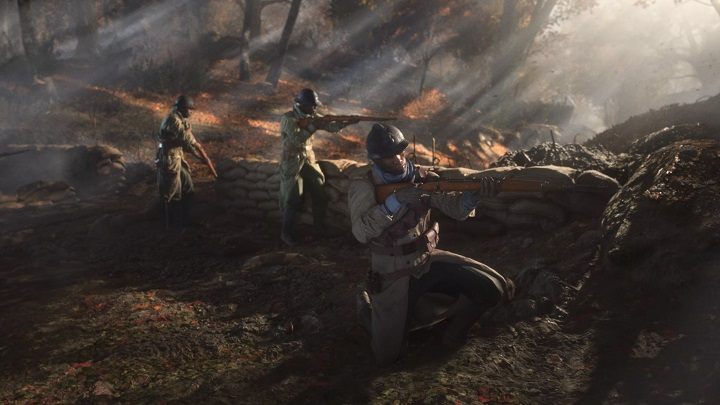
The Swede stated in one of the interviews that the community is overreacting, that they’re uneducated and if they don’t like it, they can beat it and not buy the game at all. Soon after, Battlefield’s Reddit prohibited threads where people complained about the historical discrepancies of the game, banning disobedient redditors. Then came the game’s open beta, which revealed a set of peculiar chat filters: the pool of forbidden items included the word “DLC,” for example – unless preceded by the modifier “free.”
The culmination of this fatal streak was the game’s one-month delay – instead of October, when the game would pitted against such titles as Call of Duty: Black Ops IIII and Red Dead Redemption 2, BF V was released in November. But even then, the game didn’t make the impact the creators had been hoping for.
Mobile Westworld and its “Inspirations”
Does anyone still remember Fallout Shelter? Yes, the one that attracted more than 100 million players and earned over $93 million, despite being free-to-play? Well, Warner Bros. Had seemingly forgotten about it, releasing a mobile strategy Westworld in June – a game that was an audatious purloin of Fallout Shelter. The similarities between the two titles were so apparent that they would be indistinguishable, had it not been for some minor differences in the graphical style.
Unfortunately for Warner Bros., the matter turned out to be much more serious. The studio that developed the mobile Westworld, Behavior Interactive, also co-created Fallout Shelter. Accusations of stealing the code belonging to Bethesda Softworks promptly started to appear all over the net. Of course, Warner Bros. issued a statement, in which they denied all the allegations, but at that point, nobody even considered it serious. Westwood even came the same bugs that plagued the early version of Fallout Shelter!
A lawsuit was soon filed, in which Bethesda demanded that the game be removed from the distribution, and also claimed rights to part of the income earned thus far by Warner Bros., who waved the accusations off as “groundless” and “surprising.” It seems the whole case will find its finale in the courtroom. For the time being, the game can still be downloaded to mobile devices with Android and iOS operating systems, but if the judges agree with the plaintiff, the publisher will probably have to pay a considerable compensation and remove it from distribution. And judging by the similarities between Westworld and Fallout Shelter, it is hard to imagine that any other outcome is possible.
The Gehenna of RDR2’s Dev Team
Creating a true piece of art requires sacrifice, and the employees of Rockstar Games learned that firsthand. Their newest game, Red Dead Redemption 2 sold over 17 million copies in just two weeks, and the scores give it a secure position at the very top of all rankings. A wonderful story, you might say – and it would be, except for one thing. A few days before the release, Dan Houser, a co-founder of Rockstar, revealed in a conversation with Vulture that in order to achieve this level of quality, the devs had to crunch as much as 100 hours weekly in the studio. The company quickly responded that it was only the case of four of the studio’s veteran devs, but soon, more employees started sharing similar stories on the web.

A murderous crunch, signing contracts in which developers give up the right to work no more than eight hours a day, firing people who were reluctant to stay in the office through the nights – if the statements of Rockstar’s workforce are to be trusted, such were the realities of creating a piece of art in Rockstar Games. This has often affected the health of employees, both physically and mentally – many people have neglected their family life and passions to meet the exorbitant demands of the board. Eurogamer, who investigated the issue, also discovered that overtime was absolutely mandatory at Rockstar Lincoln quality assurance division.
The company tried to defend by allowing developers to comment on their employment conditions in social media. They asserted that the reports of overwhelming amounts of work were largely exaggerated and that their experience of working at Rockstar Games was almost exclusively positive. Nevertheless, for a long time, there was an unpleasant atmosphere around the studio, fueled by articles confirming the initial reports. The situation seemed all the more nasty as it was not the first time that the company had been accused of such practices (also in 2010, during the development of the original RDR). Red Dead Redemption 2 will undoubtedly go down in history as a landmark video game achievement, but the question must be asked – would in not have been possible without endangering mental health and personal lives of its creators?
Sony vs. Cross-play
Although 70% of gamers say that they don’t really care about cross-platform multiplayer, Sony’s actions in this respect deserve a solid scolding anyway. It all started with the free-to-play Fortnite at the beginning of 2018. The Epic Game’s production, riding on the wave of its immense popularity, made its way to all significant gaming platforms, allowing everyone to play together. But someone at Sony must have said “One, big, happy family? Not on my watch!” – if you had a PlayStation 4, you weren’t able to play with users of Xbox One and Nintendo Switch. Microsoft immediately announced that it was the doing of their biggest competitior – Sony had already done a similar thing with Rocket League and Minecraft. With Fortnite, the Japanese giant managed to get on everyone’s nerves a bit more – activating your Fortnite account on PlayStation 4 permanently blocked access to it from Microsoft or Nintendo consoles.
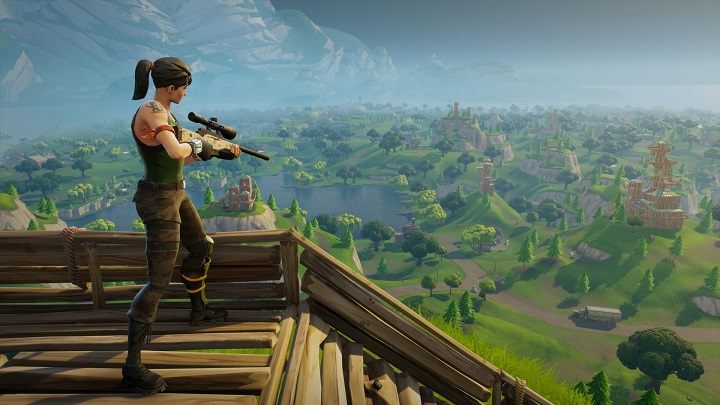
Things became even more interesting at the beginning of 2018, when a glitch enabled users of PS4 and Xbox One to play together for several hours, effectively nullifying Sony’s line of defense, which had stated that the technological challenges of crossplay between the two consoles are just insurmountable. Nintendo and Microsoft have further increased the pressure on their competitor by launching a joint Minecraft advertising campaign. Todd Howard from Bethesda, who in June blamed Sony for the absence of cross-play in Fallout 76, further fueled the conflict. However, Sony strongly denied all the accusations. Kenichiro Yoshida, the company's president, said that PlayStation 4 was the best gaming device and that's what his company focuses on, rather than ensuring that everyone can play games together.
Ultimately, however, Sony conceded. In September, the Japanese company, not hiding their discontent, announced the launch of cross-platform testing in Fortnite and announced that we can expect a few other titles to follow suit. We have to recognize, though, that Sony was really, really stubborn and endured the flak from the community and the competition for a very long time, paying no heed to the fact that they were not making anyone any favors – and certainly not aiding their reputation.
“Do you guys not have phones?” or the New Diablo
If someone in Activision Blizzard had taken a few steps back and reflected on the validity of making a mobile game the biggest announcement of this year's BlizzCon, this image catastrophe would probably have never happened. But the company went to great lengths to show the fans how much it doesn’t care about them. Presenting Diablo Immortal on the convention attended mostly by PC players, giving no info about the next installment of the series on major platforms, and then, the final insult; the contemptuous "Do you guys not have phones?", cast at the booing crowd... Anyone writing a book titled “How to discourage your entire community in one evening?” Take notes.
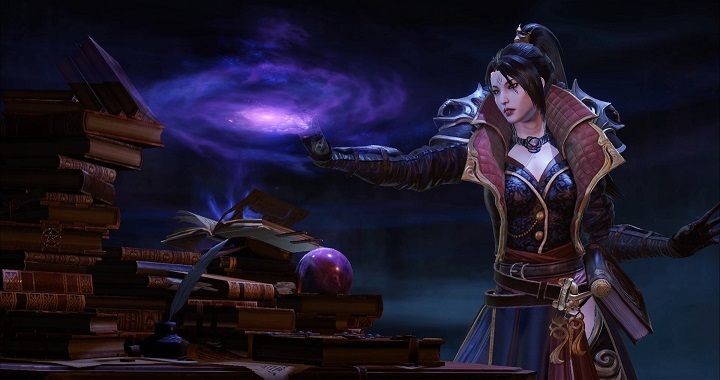
The fact that nobody thought about how the announcement of a mobile game will be received during such an event clearly shows that Blizzard has lost touch with the community. Truth is that Diablo Immortal's presentation was not meant for them – the majority of BlizzCon participants are rather remotely interested in smartphone games – but rather for the investors interested in the game’s potential in the Asian markets, preferably with a handful of microtransactions attached. Additional controversies were raised by the similarities between Diablo Immortal and other works of the Chinese NetEase studio, which was invited to cooperate in the development of this game.
However, the board apparently decided to tighten the figurative image noose around their own necks even more. A few days after the end of the BlizzCon, Allen Adham, the company's executive producer, announced to the world that work is already underway on mobile games related to all Blizzard's franchises (including a Pokémon GO-inspired project set in the Warcraft universe), and the developers delegated to them are the most talented lot you can get. It's no wonder that the devotees of the studio that had seemingly had a secret recipe for timeless PC classics, now feel cheated.
Cheer Up Boys, Your Makeup is Running
We realize this article isn’t the most pleasant endnote to 2018, especially since there were plenty to be happy about throughout the year. It is not, however, a sign of permanent discontent with the world and the industry. Video games are awesome; the great majority of players and developers are great human beings creating fantastic adventures and experiences, giving and sharing dozens of hours of entertainment.
There’s plenty to be excited about in the future, too. We just can’t wait to play all the big titles due in 2019 and to discover the hidden gems we don’t even know are waiting. But in order to make sure the industry is headed in the right direction, and that we can all enjoy video games in an environment that’s friendly to all its inhabitants, we have to expose and remember all the things that go wrong. Sometimes the mishaps are funny, sometimes they’re downright appalling, but it’s always worth to discuss them in a civil manner and look for solutions.
May the year 2019 bring fewer scandals and more of the good stuff, and let’s hope lists such as this one will be shorter every year.
